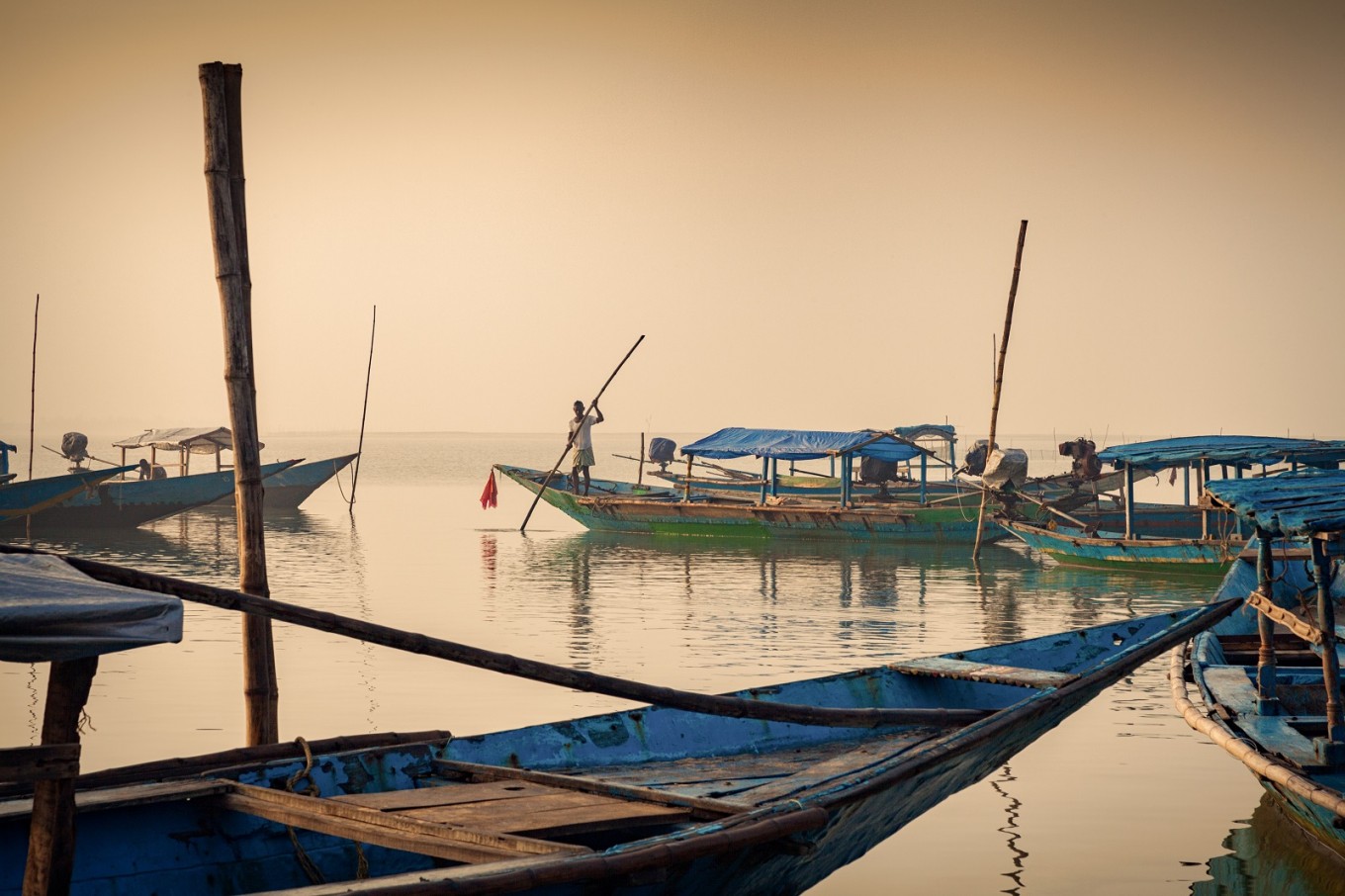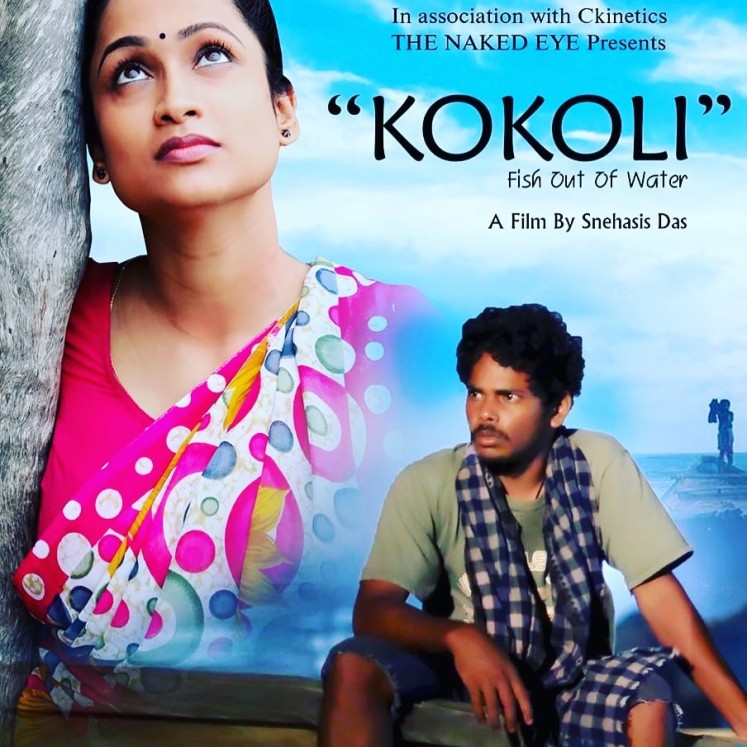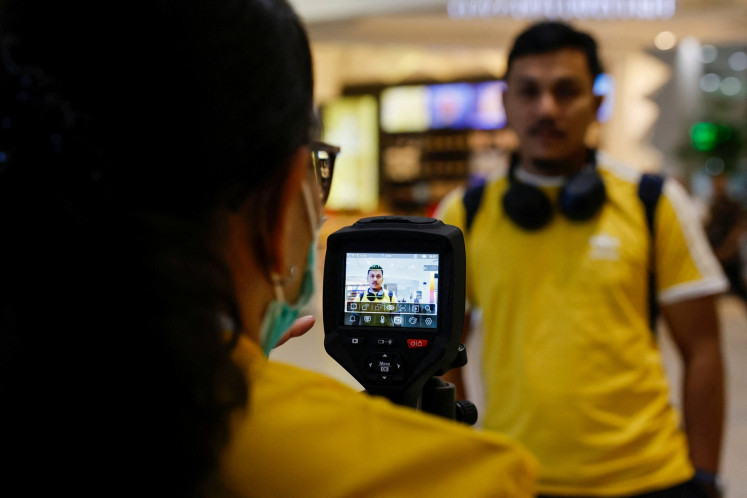Popular Reads
Top Results
Can't find what you're looking for?
View all search resultsPopular Reads
Top Results
Can't find what you're looking for?
View all search resultsLove in the time of climate change: Indian film with a new take on romance
Change text size
Gift Premium Articles
to Anyone
E
schewing the typical Bollywood storyline of young lovers facing family opposition, an upcoming Indian film instead features a couple battling climate change in order to be together.
"Kokoli", which is the name of the female protagonist and also a type of fish, tells a story of a fishing community facing the loss of livelihoods and land as sea levels rise in the eastern state of Odisha. It will be released in November.
The Oriya-language film centres on Kokoli and her boyfriend, who sets out to build a wall to keep towering waves from destroying and uprooting his village - a task he must succeed at in order to win her mother's approval.
A poster of the film 'Kokoli', a love story that highlights the impact of climate change on a coastal community (Thomson Reuters Foundation/Snehasis Das)
"Fishing is the only livelihood for them and the only skill they know. They are victims of climate change," filmmaker Snehasis Das told the Thomson Reuters Foundation.
"Simultaneously, I focus on how love - a relationship - can be disturbed due to calamities," said the 43-year-old. "It is a lot about how they adapt to love and climate change. Their future hinges on adaptation."
With a nearly 500 km (300 mile) coastline, Odisha is home to many coastal communities that depend on the sea.
The state is also one of India's most vulnerable to the effects of global warming, hit by rising sea levels, cyclones and floods, with vast stretches of the shoreline being lost to erosion.
In June, the state government warned in a report that fishermen's catches could plummet with rising temperatures.
India faces the most severe threat from climate change, followed by Pakistan, the Philippines and Bangladesh, HSBC showed in a March survey of 67 countries.
Changing weather, along with more frequent droughts and heat waves, will hurt agricultural output and food security in developing nations such as India, according to studies by HSBC, the World Bank and the World Health Organization.
Climate change will also lead to water shortages and outbreaks of water and mosquito-borne diseases such as diarrhea and malaria, according to their research.
"The effects (of climate change) creep up on you and many of these communities know there is something brewing - more tides, water reaching their huts - but don't see any immediate danger," said Das.
"But they have to understand that they must start adapting now, before it is too late, which is something I have touched upon in my film."
Read also: Climate change hits Germany, and winemakers couldn’t be happier
Change makers
In order to appeal to a wide audience, Das also threw a song sequence into the mix, like Bollywood does, but he said the main aim is to get a message across to people.
"A good way to do this is through a human angle that says, 'If this is happening to them, it can happen to you too,' - to make it relatable. And what is better than a love story? Everybody likes a good love story."
He urged Bollywood - the world's largest film industry - to steer away from glitz and glamour and make some movies about climate change, even if the prospects of producing blockbusters about such subjects are slim.
"Bollywood has the power to reach the masses so easily. And it can be challenging weaving in a social message in a commercial film, but it can be done," said Das, who has made about 15 documentaries and several music videos on the topic.
More than anyone else, Das hopes his film reaches the country's youth who he says are "future change makers".
"This problem is only going to snowball and the younger generation can help, perhaps by dedicating some of their work to this cause and create awareness," he said.
"They are my target audience."












